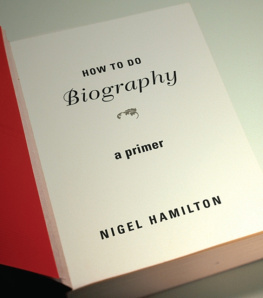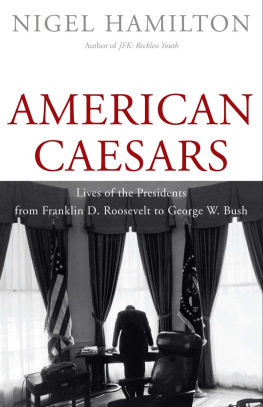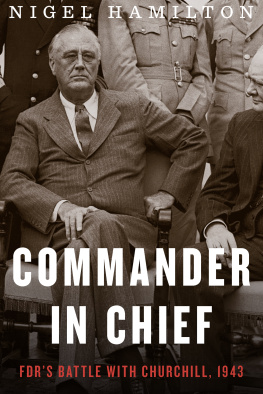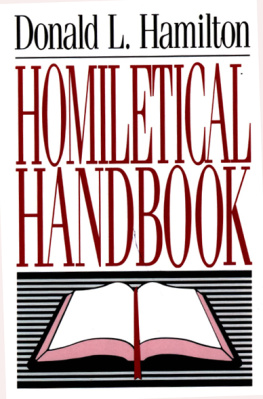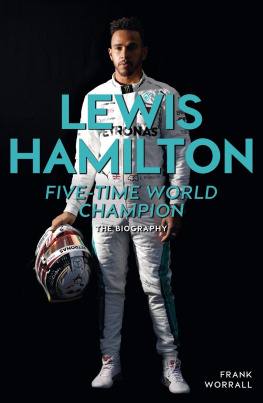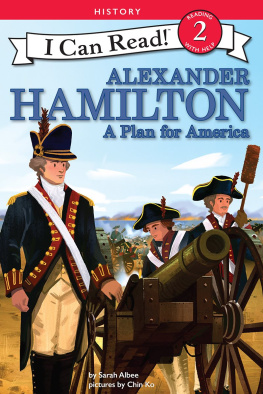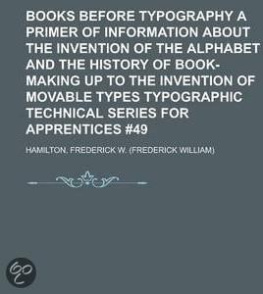Nigel Hamilton - How To Do Biography: A Primer
Here you can read online Nigel Hamilton - How To Do Biography: A Primer full text of the book (entire story) in english for free. Download pdf and epub, get meaning, cover and reviews about this ebook. year: 2008, publisher: Harvard University Press, genre: Religion. Description of the work, (preface) as well as reviews are available. Best literature library LitArk.com created for fans of good reading and offers a wide selection of genres:
Romance novel
Science fiction
Adventure
Detective
Science
History
Home and family
Prose
Art
Politics
Computer
Non-fiction
Religion
Business
Children
Humor
Choose a favorite category and find really read worthwhile books. Enjoy immersion in the world of imagination, feel the emotions of the characters or learn something new for yourself, make an fascinating discovery.
- Book:How To Do Biography: A Primer
- Author:
- Publisher:Harvard University Press
- Genre:
- Year:2008
- Rating:4 / 5
- Favourites:Add to favourites
- Your mark:
- 80
- 1
- 2
- 3
- 4
- 5
How To Do Biography: A Primer: summary, description and annotation
We offer to read an annotation, description, summary or preface (depends on what the author of the book "How To Do Biography: A Primer" wrote himself). If you haven't found the necessary information about the book — write in the comments, we will try to find it.
How To Do Biography: A Primer — read online for free the complete book (whole text) full work
Below is the text of the book, divided by pages. System saving the place of the last page read, allows you to conveniently read the book "How To Do Biography: A Primer" online for free, without having to search again every time where you left off. Put a bookmark, and you can go to the page where you finished reading at any time.
Font size:
Interval:
Bookmark:
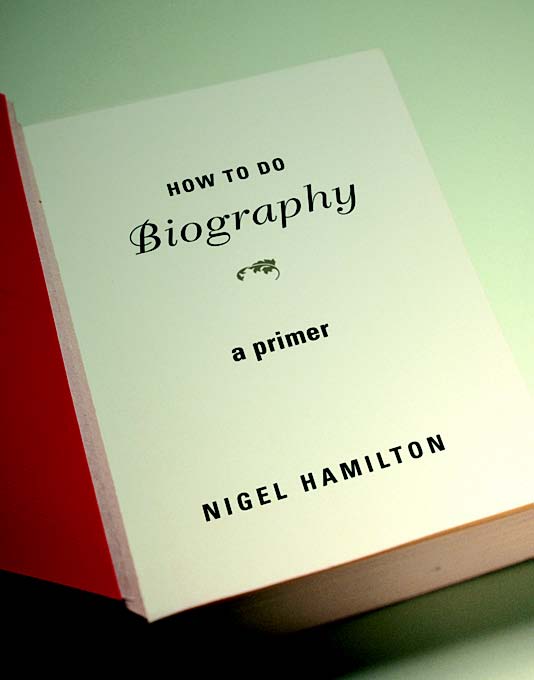
HO W T O D O
Biograph y
=
NIGE L HAMILTO N
Harvard University Press
cambridge , massachusett s london , englan d
Copyright 2008 by Nigel Hamilto n All rights reserve d Printed in the United States of Americ a
Librar y o f Congres s Cataloging-in-Publicatio n Dat a
Hamilton, Nigel . How to do biography : a primer / Nigel Hamilton . p. cm . Includes bibliographical references and index . ISBN 978-0-674-02796-1 (hardcover : alk. paper ) 1. Biography as a literary form. 2. BiographyResearch Methodology. 3. AutobiographyAuthorship. I. Title .
CT22.H36 200 .06692dc22 200704758
For Oskari Gray Hamilto n n June 9, 200 an d Joyce Seltze r
Introduction 1
i . Gettin g Starte d
1. The Task of Biography 7
2. What Is Your Agenda? 22
3. Defining Your Audience 47
4. Researching Your Subject 63
5. The Shape of a Life 93
ii . Composin g a Life-Stor y
6. The Starting Point 119
7. Birthing Your Subject 138
8. Childhood and Youth 155
9. Love Stories 174
10. Lifes Work 194
11. The Twilight Years 217
12. Ending Your Story 238
iii . Variation s o n a Them e
13. Autobiography and Memoirs 269
14. Memoir 294
15. Truthand Its Consequences 317
16. The Afterlife 334
Notes 349 Selected Bibliography 362 Acknowledgments 368 Index 371
HO W T O D O BIOGRAPH Y
e liveat least in the Western worldin a golden age for biography. The depiction of real lives in ev ery medium from print to film, from radio to television and the Internet, is more popular than ever. More people are undertaking biographies (and autobiographical works, such as blogs and memoirs) than ever before. Yet there is still, to my knowledge, no book or primer to guide the would-be biographer in tackling the record and interpreta tion of a human individual, past or present.

Given the contribution that biography makes to knowl edge and understanding in the modern democratic world, this is, to say the least, disappointing. A society in which no biographies could be produced is almost unthinkableyet we do not teach the study and composition of biography, in all its aspects, in higher education. Its ethics, like the his tory and theory behind it, thus go largely unaddressed,
introductio n
while at a practical level there are still relatively few courses offered to those who wish to write a biography, whether big or small. Would-be biographers are thus left largely to their own devices, scrabbling for advice and examples in every direction.
Having spent a lifetime in the business of biographyas a writer, teacher, bookseller, publisher, and filmmakerI therefore wondered whether it would be useful to write a short book of advice on how to do biography, a manual that would follow Biography : A Brie f History , my survey of biographys long and storied past up to the present day.
The project proved more challenging than I anticipated. For instance, I had hoped, initially, to cover the many dif ferent media in which life-depiction can be tackled in our time. This was beyond me; the manuscript filled with sub junctives, subsidiary clauses, subsidiary cases, multiple choices. It lacked claritywhich is essential in tackling a life. I therefore began again, confining myself to print bi ography. Perhaps one day this can be extended to the vi sual and aural media of film, radio, television, the fine arts, and the Internet, where the biographical impetus is now such a burgeoning force. Meanwhile I hope that Ho w T o D o Biograph y will provide a building block, and a start.
I have structured the book in sixteen chapters, to cover the main elements of the biographical undertaking, from conception to composition and publishingbut although they reflect the stages in which you accomplish the work, I must emphasize that the real process of biography is like juggling: you must learn to manage several aspects simultaneously. The business of research, for example, constantly affects your agenda, your design, and your compositionas does a concern with your audiences needs and expectations.
Because interest in memoir has been increasing expo nentially of late, I have included several chapters on auto biography as well. I hope they, too, will be useful.
In the course of this work, Ive chosen a number of brief extracts from well-known biographies: examples of good practice that illustrate the sheer range of approaches you can adopt, from great beginnings to memorable death scenes.
My intention was to write a primer that would be read able, informative, instructiveand, to a degree, entertain ing. Biography has been my passion for more than forty yearsand I hope it will be yours, too, for it offers a raft of pleasures and fulfillments, if you get it rightas well as in teresting life-experience if you dont!
Enjoy !
i Gettin g Starte d
=
ON E

No species of writing seems more worthy of cultivation than biography, since none can be more delightful or more useful, none can more certainly enchain the heart by irre sistible interest, or more widely diffuse instruction to every diversity of condition.
Samue l Johnson ,
Th e Rambler , 60 (October 13, 1750)
 ou wish to write or produce a life, but wisely pause to think about the task. I have no wish to hold you up; but no would-be biographer, in my view, should embark on the depiction of a real life without bothering to know something about howand whyprevious biographers have addressed the lives of real individuals in the pastand with what results. From canonizations, peerages, and professorships to trials, punishments, and even beheadings, it is a fascinating story.
ou wish to write or produce a life, but wisely pause to think about the task. I have no wish to hold you up; but no would-be biographer, in my view, should embark on the depiction of a real life without bothering to know something about howand whyprevious biographers have addressed the lives of real individuals in the pastand with what results. From canonizations, peerages, and professorships to trials, punishments, and even beheadings, it is a fascinating story.
When did the biographical urge arise in humans? How was it first manifested? How did the invention of writing in cuneiform and, later, in ink on papyrusaffect the course of life-depiction? Was the purpose to commemorate the deador to judge them? Was it individuals achievements that were important to record, or their charactersand why? Did readers want to learn o f the deador fro m the dead? And where did artthe art of storytelling and com positioncome in?
These are important questions for us, because theyve remained more or less constant throughout Western his tory, and are still valid today. Dr. Johnson, who had under taken to write the lives of the eminent English poets, put the matter very well. Most accounts of particular persons are barren and useless, he commentedEnglish biogra phies of his time (circa 1750) having been allotted to writ ers who seem little acquainted with the nature of their task.
What the tas k of biography is, then, must be your first concern, if you wish to avoid Dr. Johnsons penitentiary! How did your predecessors see their task, how did they carry it outand with what results? Even though biogra
th e tas k o f biograph y
phy is seldom, if ever, taught at the university level, it i s a discipline, and awareness of its history and rationale can only enrich your view of what youre undertaking as a life-chronicler in todays society. It may also help you avoid some of the pitfallsor, if not avoid them, may help you take consolation in the pitfalls already encountered by bi ographers past. After all, Xenophon, Plutarch, Julius Caesar, Suetonius, Tacitus, Matthew, Mark, Luke, and John, the Gnostic gospelers, Saint Augustine, Holinshed, Sir Walter Raleigh, Shakespeare, Vasari, Bellini, Dr. John son, Boswell, Rousseau, Casanova, de Quincy, Lockhart, Carlyle, Froude, Morley, Leslie Stephen, Gosse, Freud, Strachey, Woolf, Nicolson, and others who brought biog raphy into the modern age, as well as innovators like Flaherty, Gance, Riefenstahl, Welles, Brecht, Capote, Holroyd, Plath, Hughestheir hard-won experience in de picting real lives has shaped our biographical conventions, and we would be daft to ignore them as we start out.
Font size:
Interval:
Bookmark:
Similar books «How To Do Biography: A Primer»
Look at similar books to How To Do Biography: A Primer. We have selected literature similar in name and meaning in the hope of providing readers with more options to find new, interesting, not yet read works.
Discussion, reviews of the book How To Do Biography: A Primer and just readers' own opinions. Leave your comments, write what you think about the work, its meaning or the main characters. Specify what exactly you liked and what you didn't like, and why you think so.

